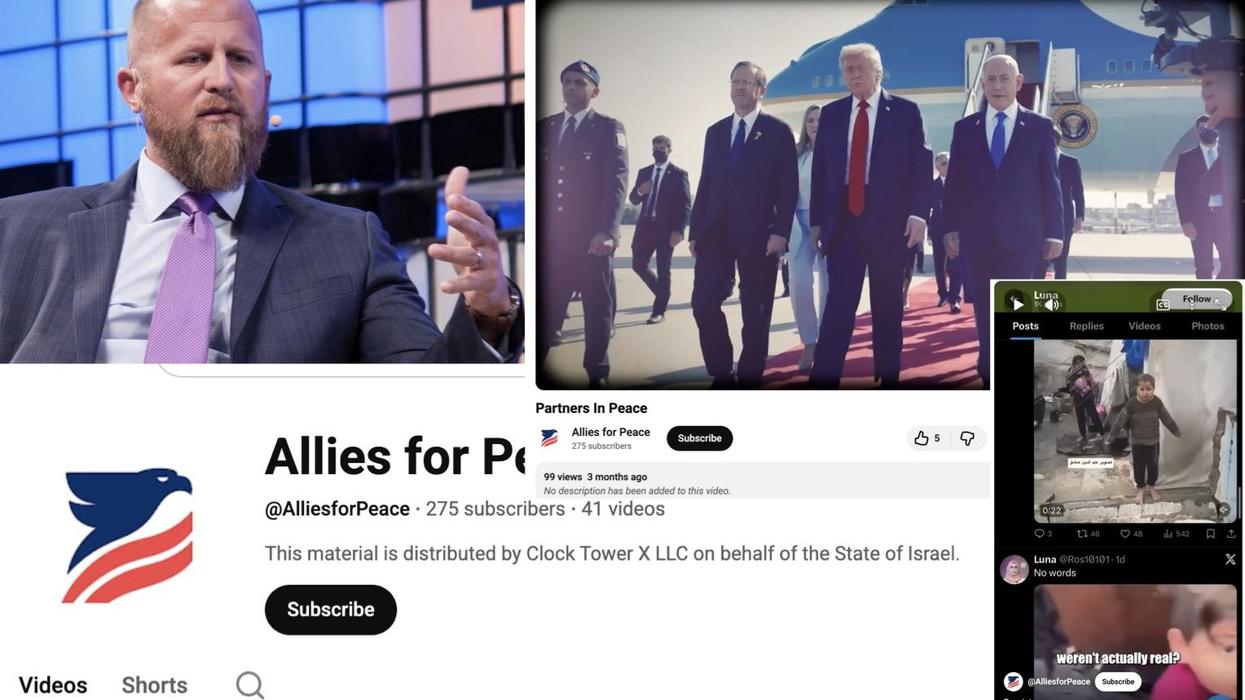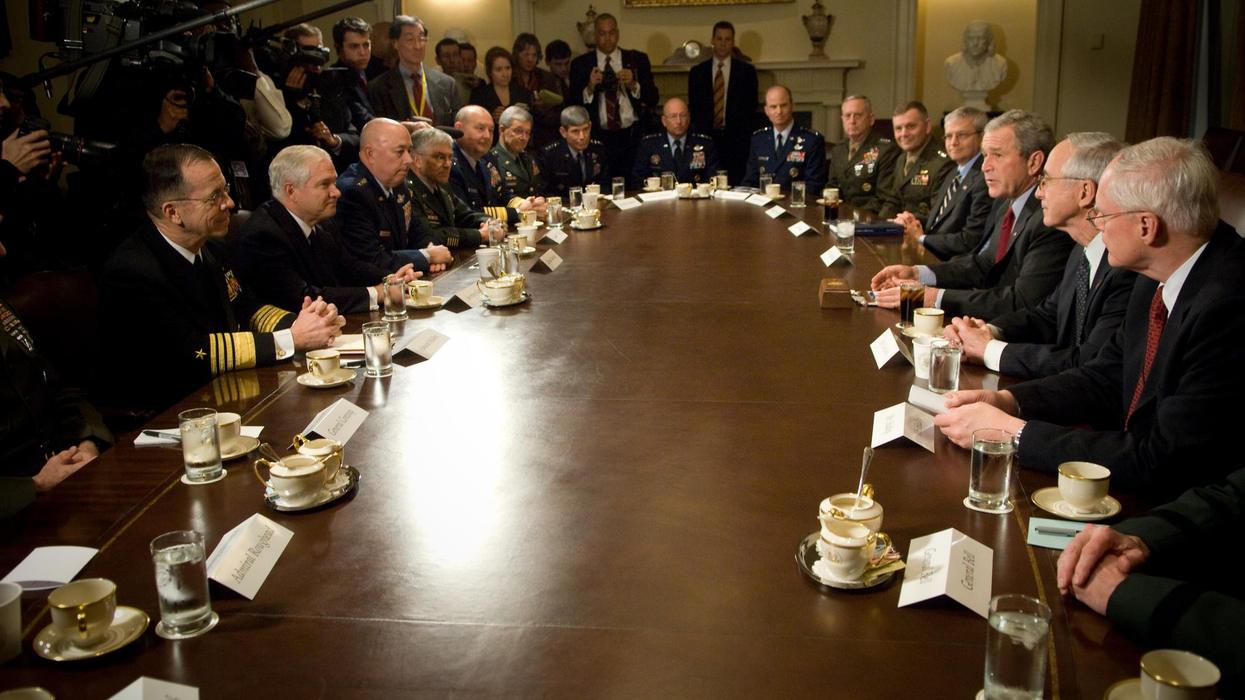Leaders of six African nations are planning to visit Moscow and Kyiv “as soon as possible,” South African President Cyril Ramaphosa announced after speaking separately with Vladimir Putin and Volodymyr Zelensky over the weekend.
"I agreed with both President Putin and President Zelensky to commence with preparations for engagements with the African heads of state," Ramaphosa said. The African delegation will reportedly include the heads of state of Zambia, Senegal, the Republic of Congo, Uganda, and Egypt, along with Ramaphosa.
The South African president said that discussions between the leaders have been taking place for a number of months, and during his press conference announcing the initiative, he spoke of the serious consequences that the war has had on the continent, particularly regarding food security and surging fuel prices.
“A group of African heads of state took the view that Africa does need to put forward a peace initiative that could help to contribute to the solution of that conflict,” he said.
Later in the press conference, Ramaphosa said that “facilitators” from the conflict resolution-focused Brazzaville Foundation had traveled to Washington and several European capitals to discuss the initiative, and it had been met with “cautious support” in the West.
This South African-led initiative is the latest effort from BRICS economies to work toward a negotiated settlement to the war, with China, Brazil, and India all having expressed some level of willingness to act as a mediator between Russia and Ukraine. Recently, an envoy from Beijing reportedly completed a two-day trip to Ukraine, the first step in a visit that will also take him to Russia and through Europe, in an effort to shore up China’s image as a peacemaker and begin communications about an eventual settlement. The timeline for the African delegation’s visit is not yet clear.
The annoucement follows U.S. accusations that Pretoria had covertly supplied Russia with weapons late last year. South Africa has to date maintained an explicitly non-aligned approach toward the conflict, abstaining from multiple United Nations votes condemning Moscow. “The arming of Russia by South Africa … is fundamentally unacceptable,” Washington’s ambassador to South Africa Reuben Brigety said last week, according to a video of his remarks. “We are confident that weapons were loaded onto that vessel and I would bet my life on the accuracy of that assertion.”
Ramaphosa’s office expressed disappointment that the Brigety had “adopted a counterproductive public posture,” given the lack of evidence presented. South Africa’s communications minister said that Pretoria never approved any arms sales to Russia, but would not say if an unsanctioned shipment had left South Africa, according to Al Jazeera. After meeting with South African foreign minister Naledi Pandorbetween, Brigety posted on Twitter, saying that he was “grateful for the opportunity to … correct any misimpressions left by my public remarks. In our conversation, I re-affirmed the strong partnership between our two countries.” South Africa's foreign ministry said that the ambassador had apologized “unreservedly" for claiming the country sold weapons to Russia.
In other diplomatic news related to the war in Ukraine:
—Zelensky gave a wide-ranging interview to the Washington Post. When asked whether his stance against negotiating with the Kremlin had shifted, the Ukrainian president said it had not: “Not because someone is stubborn, but because they have chosen the path of destruction of Ukraine — a full-scale path. That’s why we can’t absolve anyone of responsibility. There is a collective here, and it is responsible for the war of aggression — a full-scale, well-thought-out war with a desire to destroy all life.”
Zelensky later added, “We are dealing with people with whom, on the one hand, it is impossible to make agreements because they will not execute them. There is no point. And on the other hand, these same people are murderers and terrorists, and so you cannot just give in to their demands.”
—The Post also reported that NATO is working to bridge divisions over how to address the question of Ukrainian membership. According to the story, there is consensus among members “despite advocacy from Kyiv, NATO will not issue Ukraine a formal invitation to join at the July 11-12 meeting. … But Eastern European nations are pushing for concrete steps toward that goal, including potential commitment to a timeline for Ukraine’s accession, even as the United States and some Western European nations advocate smaller steps that could include a bureaucratic upgrade to a NATO-Ukraine body or a decision to further expand NATO’s technical support to Ukraine’s defense sector.”
—Fourteen national security experts signed an open letter, published as an ad in the New York Times on Tuesday, urging a swift diplomatic end to the war. The letter says that the conflict will be “our undoing” if we don't dedicate ourselves to forging a diplomatic settlement that stops the killing.”
“In diplomacy, one must attempt to see with strategic empathy, seeking to understand one’s adversaries,” according to the letter. “This is not weakness: it is wisdom.”
—The UN-brokered deal that allowed Ukraine to safely ship millions of tons of grain through the Black Sea was set to expire on Thursday, and there was concern that it would not be renewed after Kyiv said that there were no more talks planned this week. However, Turkish President Recep Tayyip Erdoğan said on Wednesday that the agreement had been extended for another two months. "With the efforts of our country, the support of our Russian friends and the contributions of our Ukrainian friends, it was decided to extend the Black Sea Grain Corridor Agreement for another 2 months," Erdoğan said in a tweet. "Good luck to the whole world."
U.S. State Department news:
In Wednesday’s press briefing, spokesman Vedant Patel addressed the extension of the Black Sea grain deal, saying that Washington strongly supported the UN and Turkey’s efforts.
“But as Secretary Blinken has previously said, we should not need to remind Moscow every few weeks to keep their promises and to stop using people’s hunger as a weapon in their war against Ukraine. We should not need to remind Russia to stop obstructing inspections to allow grain to flow to vulnerable people who need it,” he added. “The world needs the Black Sea Grain Initiative. What’s more, the world needs Russia to end its illegal war against Ukraine, which would allow farmers to return to their fields, return agricultural trade to normal, and immediately and significantly improve global food security.”

















